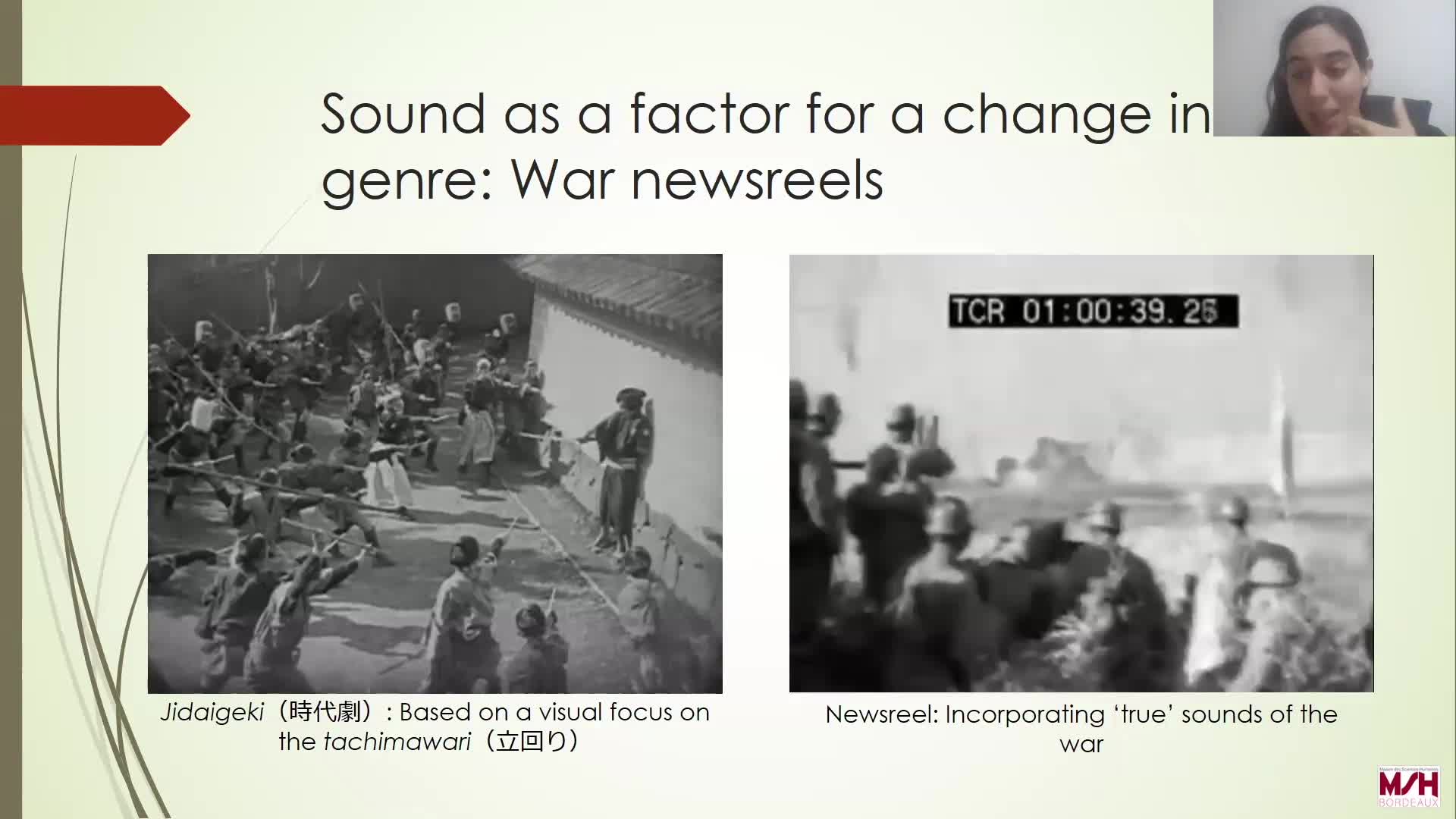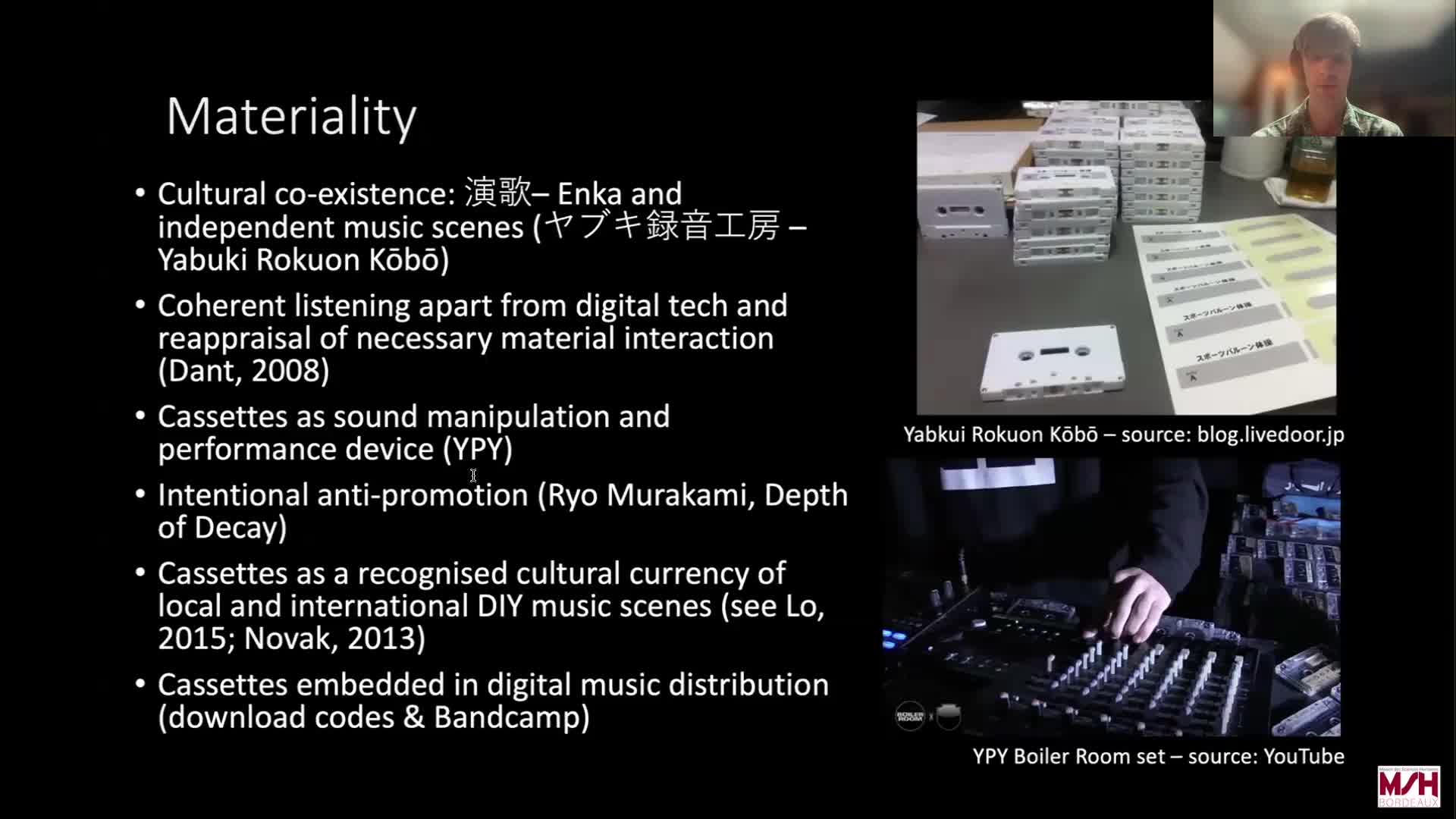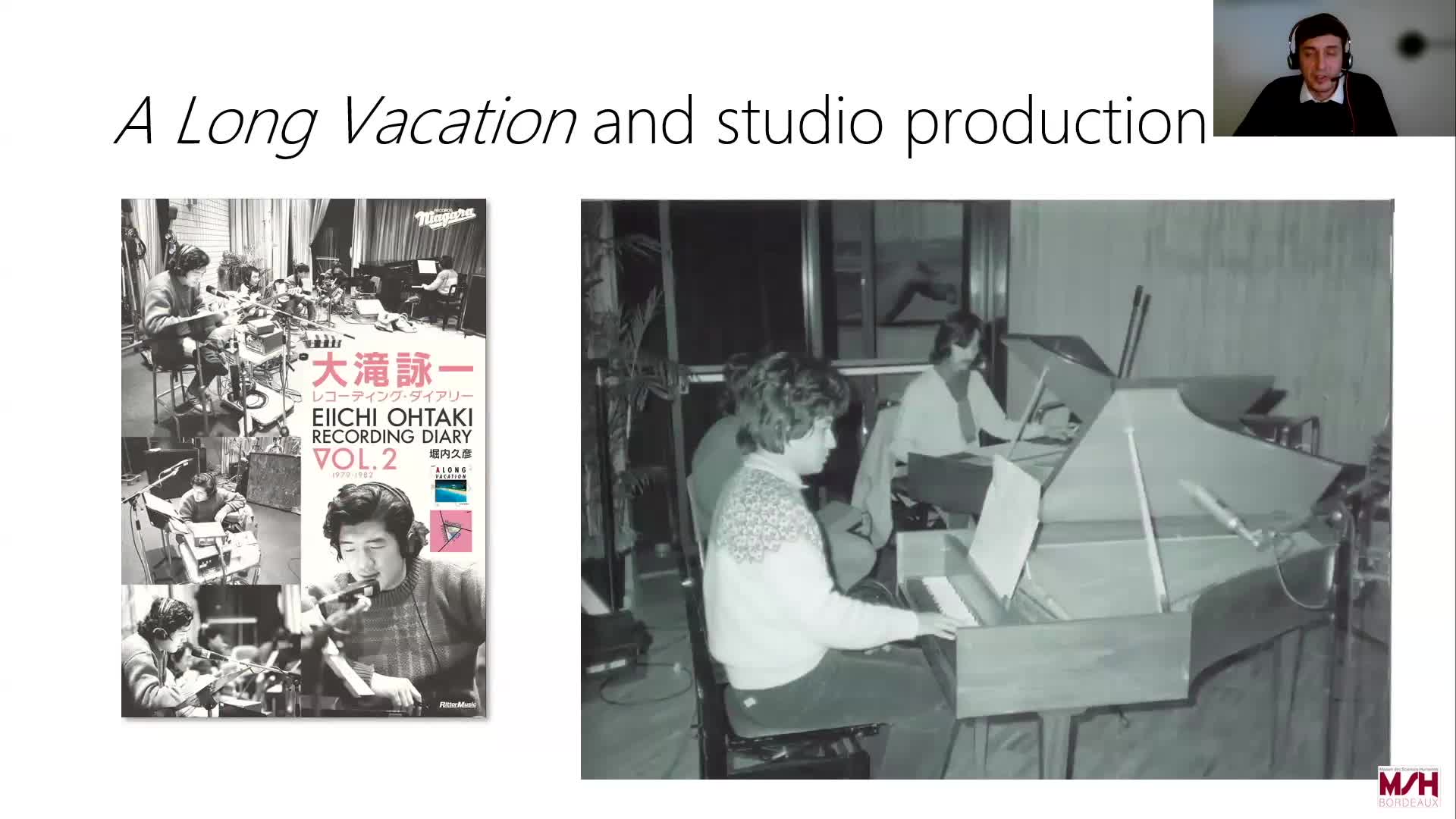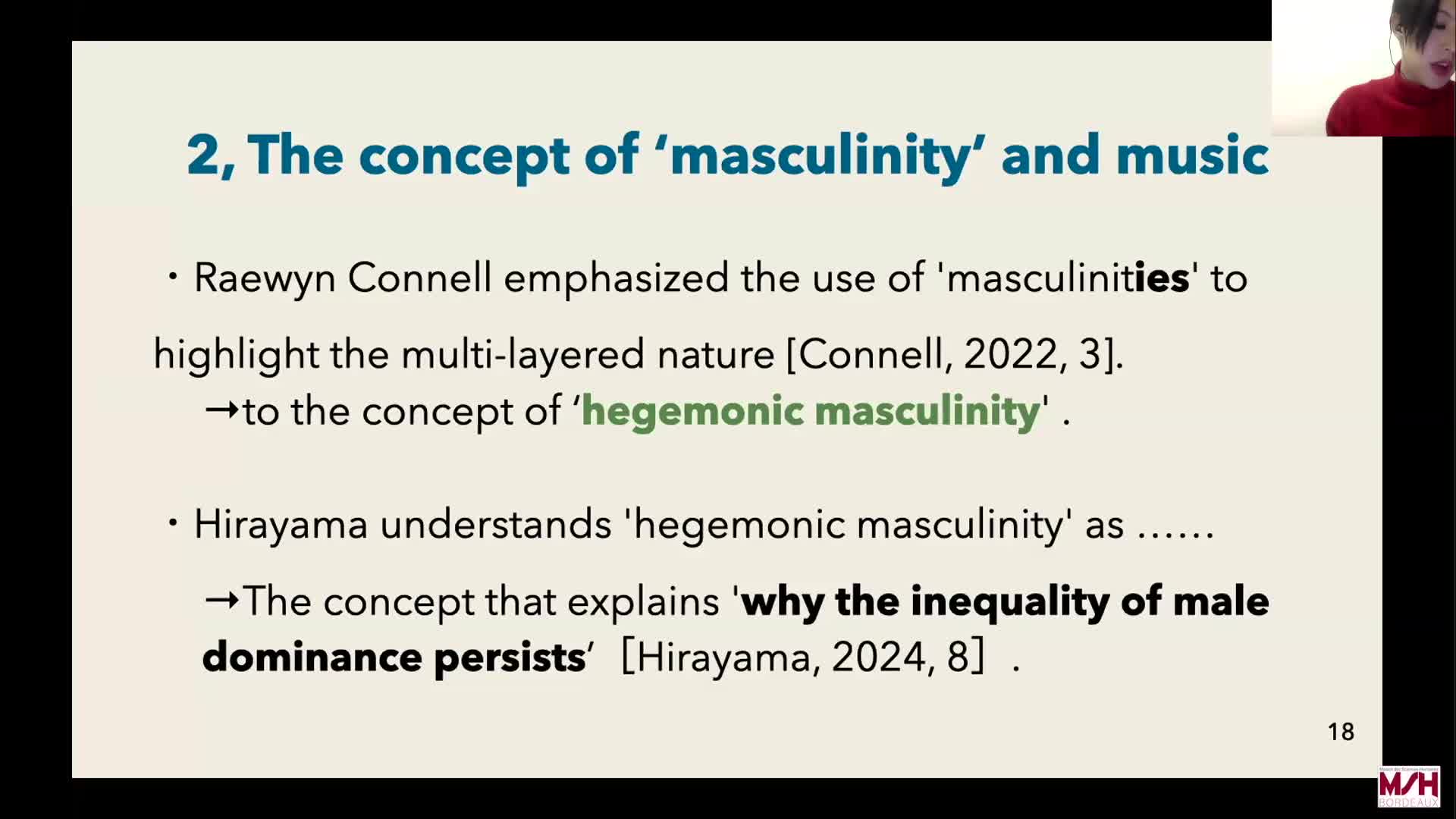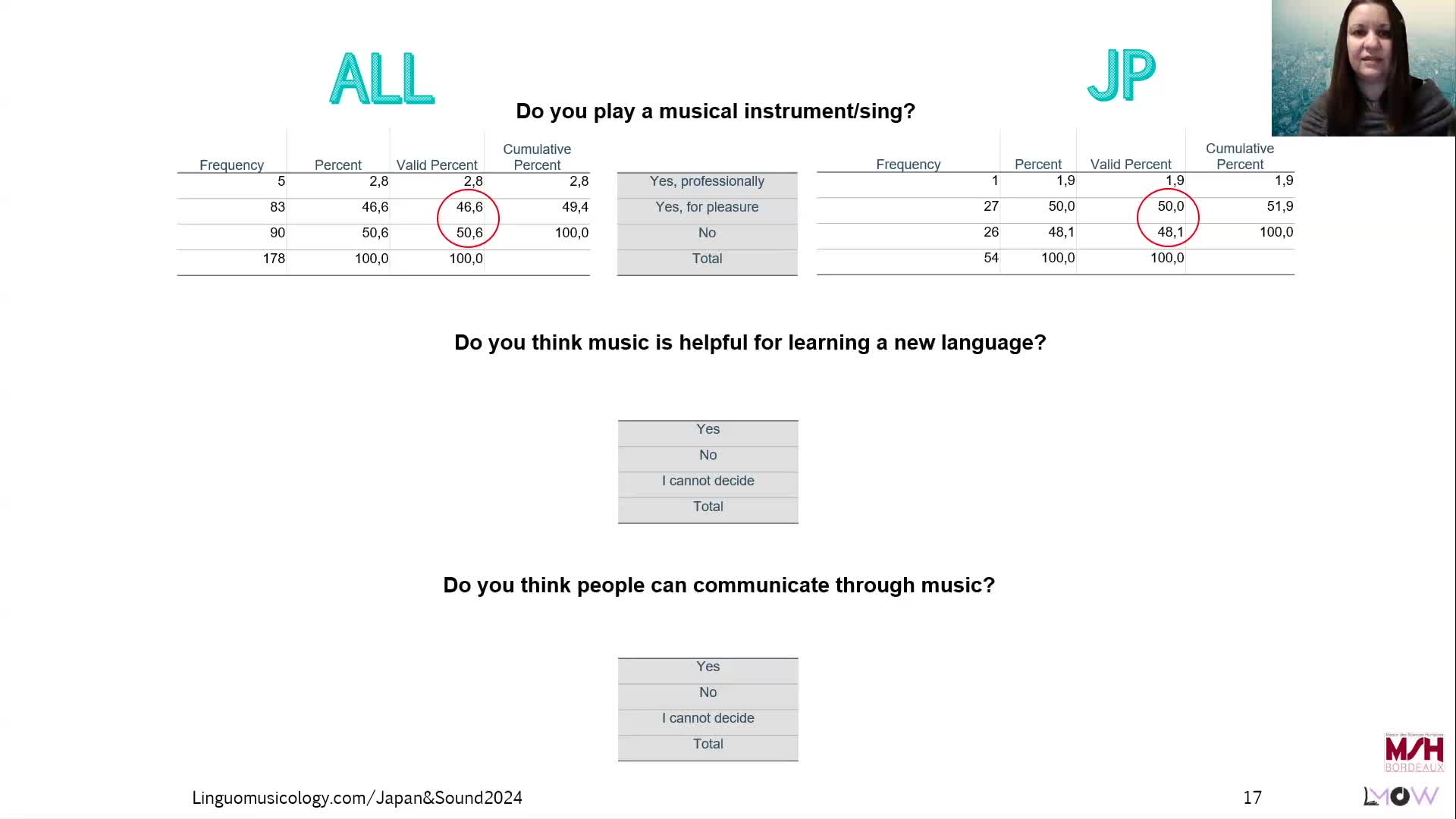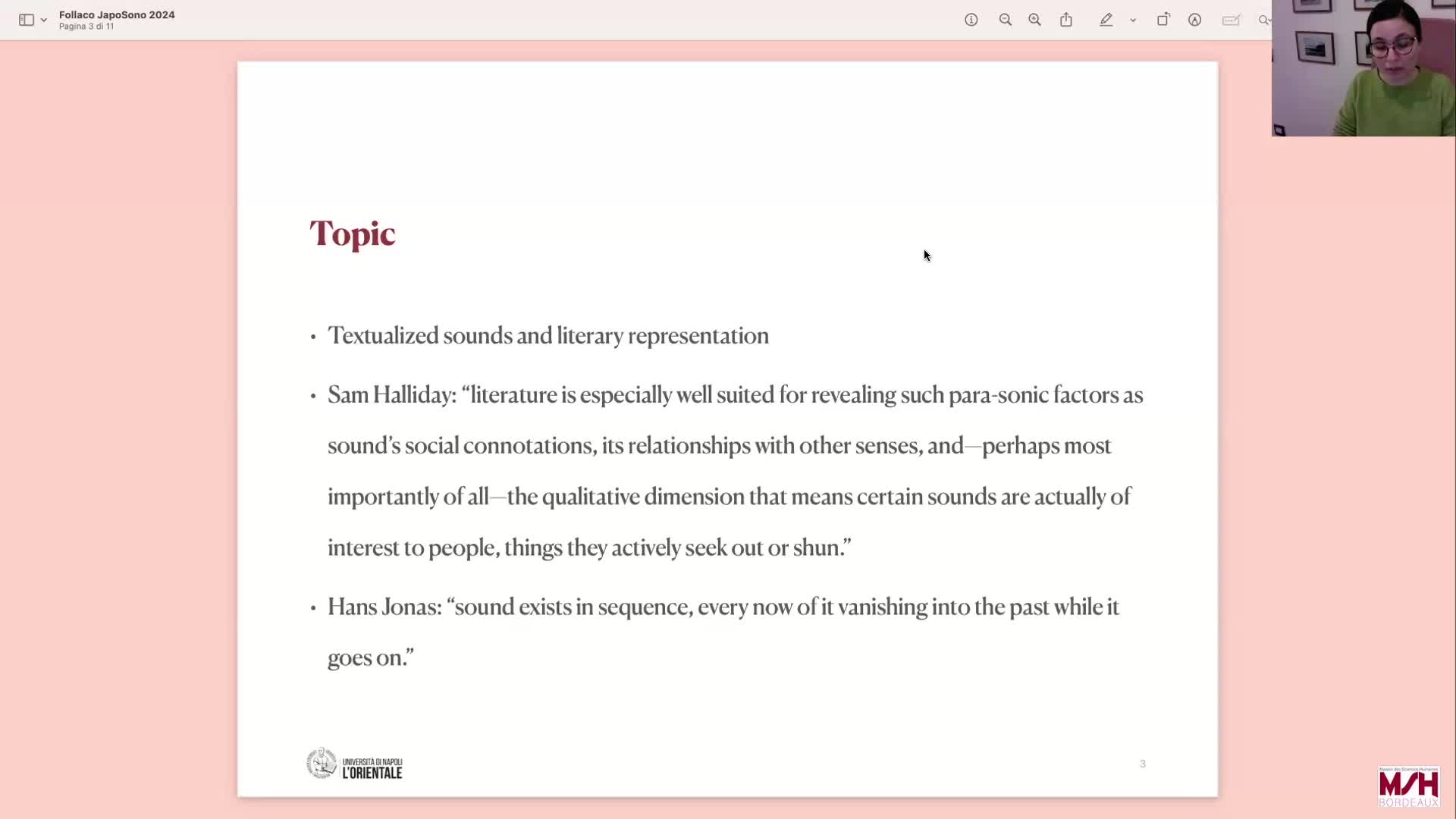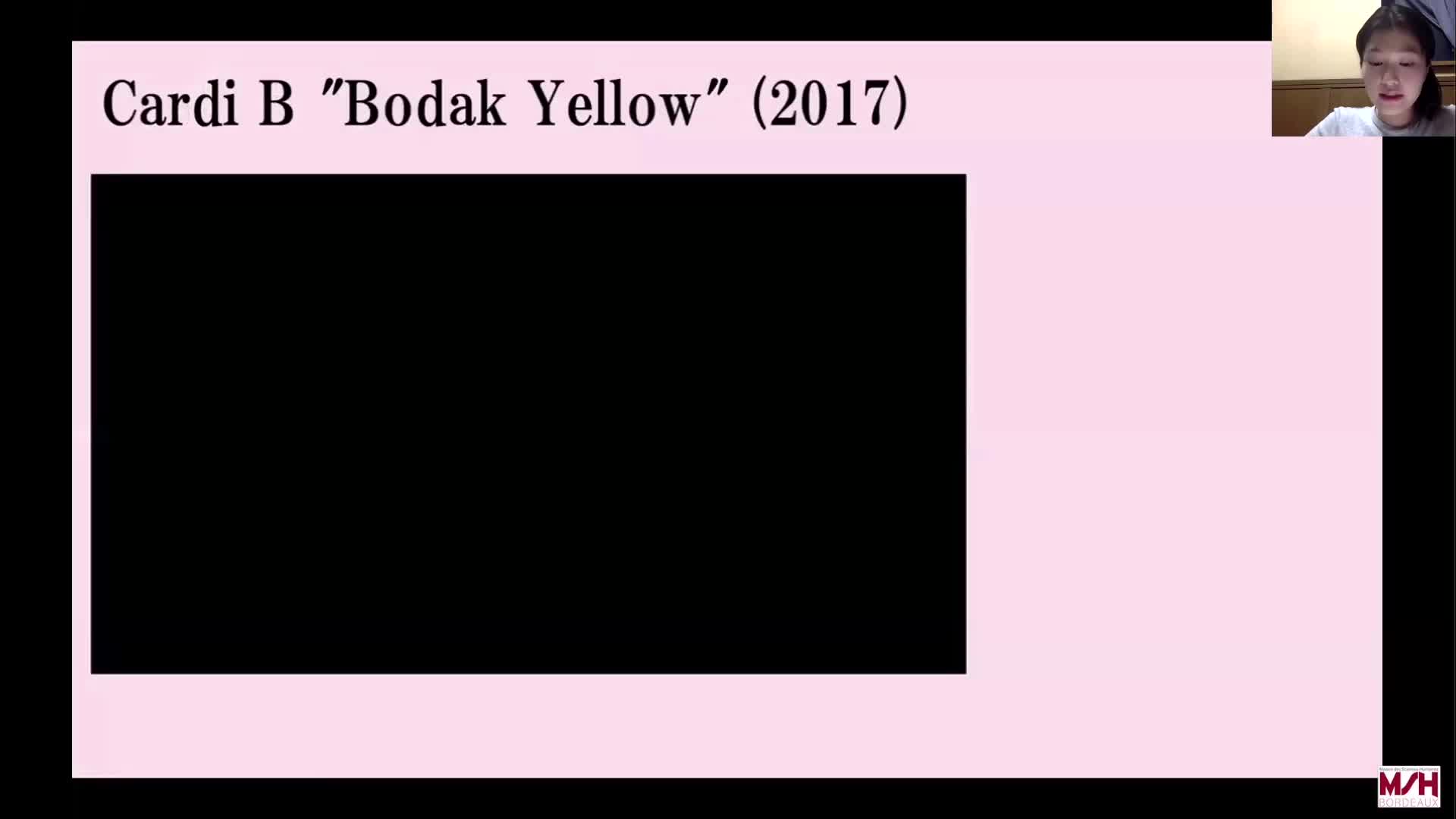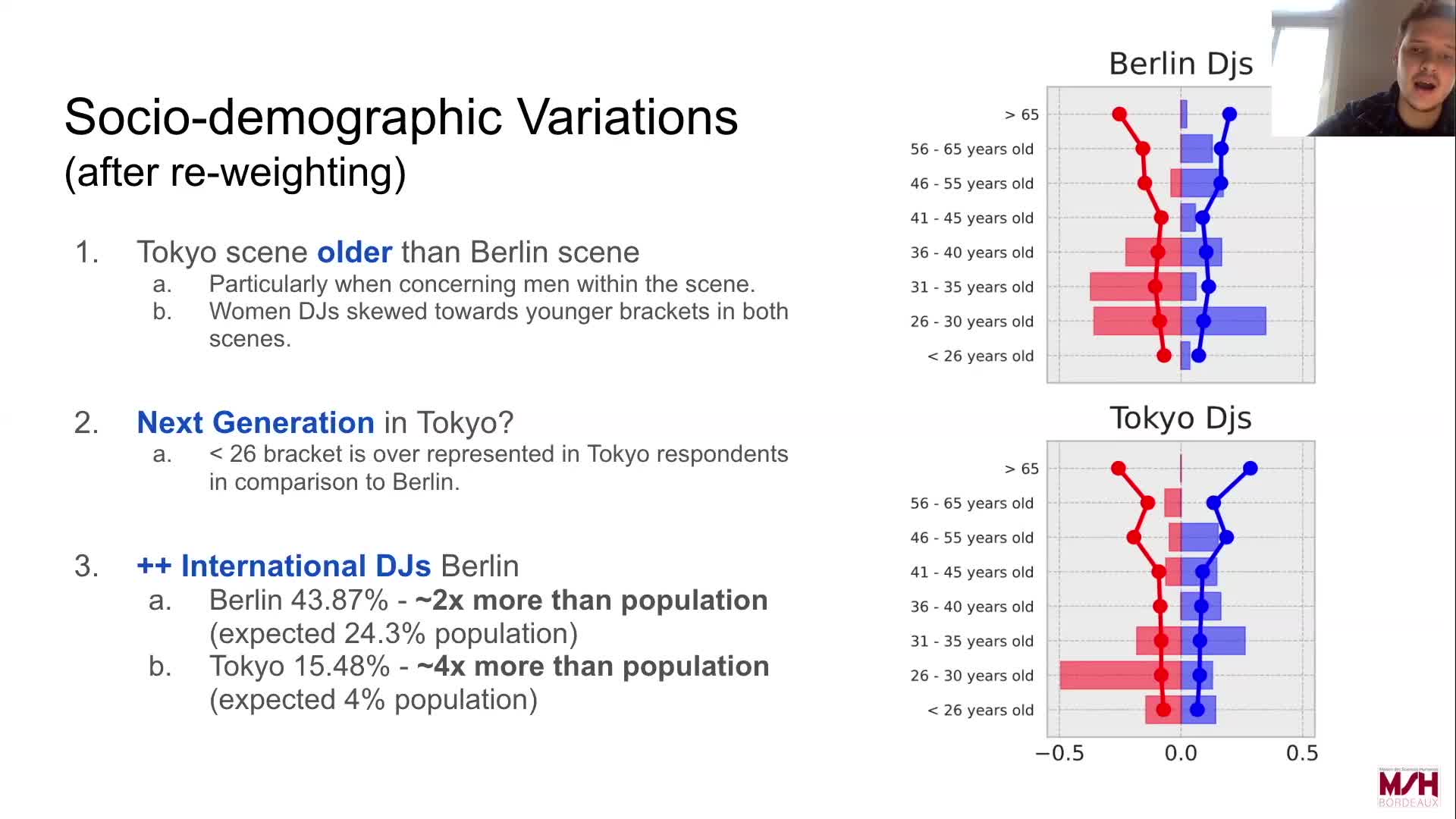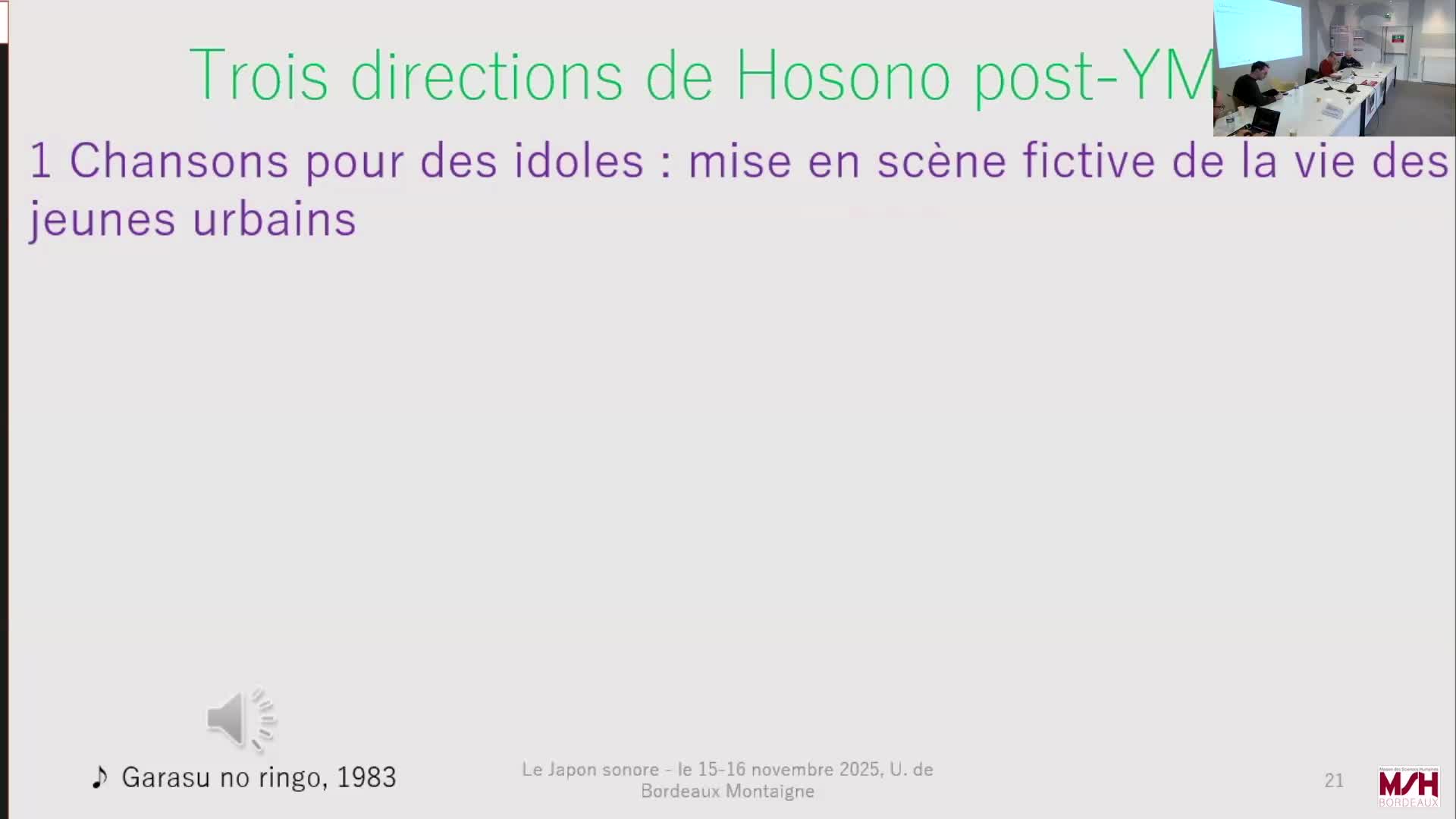Notice
Multivocality and the vocaloid fan canon
- document 1 document 2 document 3
- niveau 1 niveau 2 niveau 3
Descriptif
Rafal Zaborowski, "Multivocality and the vocaloid fan canon".
Panel 9 – The agentivity of subjects listening to and producing sound
In this paper I explore audience interactions and engagement with an emphasis on vocaloid idol fandom in Japan and the ways fans’ reflective media practices create new meanings and renegotiate old ones. Virtual performers, once considered a novelty, now firmly a well-established part of the global entertainment industry, have invited popular and professional debates on cultural value, corporality, and the future of music. Audiences and fans often remain overlooked in such discussions. To address this gap, I draw on empirical research conducted in Japan to navigate through the multifaceted landscape of vocaloid cultures. Theoretically, the paper confronts the concepts of canon and fanon (fan canon) from fandom studies with audience reception framework and theories of parasocial interaction – offering the concept of multivocality binding these threads together. Empirically, the paper stems from a decade of original research on listening in Japan, including surveys, textual analysis, interviews, and focus groups with Japanese audiences, producers, musicians and managers, but also field ethnography in music venues, at street performances, and during instances of everyday listening. Through my analysis of the data, I argue that the existence of canon and fan expectations shape the nature of social relationships formed between audiences and virtual artists, thereby opening (or closing) interpretive and creative opportunities for the audience to explore. I posit that fan interactions with virtual performers are multivocal: the lack of a dominant canonical voice combined with the virtuality of the artist and the possibility of participation in fanon aid media practices which foreground audiences’ voices and self-reflection. As technology continues to shape the boundaries between virtual and non-virtual entertainment, the paper emphasizes the importance of unravelling the complexities of multivocal virtual engagements for a comprehensive understanding of digital media audiences.
Colloque "Le Japon sonore : modernité, constructions sociales, rapports de force / Japan and sound: modernity, social constructs and power relations" 14-16 novembre 2024, organisé par Jeremy Corral (UMRU 24140 D2IA, Université Bordeaux Montaigne) et par Chiharu Chûjô (EA 4186-IETT, Université Jean Moulin Lyon 3).
More informations: https://mshbordeaux.hypotheses.org/10930
Thème
Dans la même collection
-
Clôture du colloque / Closing comments
CorralJeremyChujoChiharuColloque "Le Japon sonore : modernité, constructions sociales, rapports de force / Japan and sound: modernity, social constructs and power relations"
-
The ear is a weapon: Soundscapes of racial violence in Tokyo, 1923
Colloque "Le Japon sonore : modernité, constructions sociales, rapports de force / Japan and sound: modernity, social constructs and power relations"
-
Recorded sound and the development of ideological control: Changes in Japanese cinema since 1931
Colloque "Le Japon sonore : modernité, constructions sociales, rapports de force / Japan and sound: modernity, social constructs and power relations"
-
Tomorrow on cassette: Japan’s tape jams in the new media age
Colloque "Le Japon sonore : modernité, constructions sociales, rapports de force / Japan and sound: modernity, social constructs and power relations"
-
Re-sounding Shōwa: Ōtaki Eiichi’s A Long Vacation and nostalgia for 1980s Japan
Colloque "Le Japon sonore : modernité, constructions sociales, rapports de force / Japan and sound: modernity, social constructs and power relations"
-
Masculinities and femininities of Japanese singer-songwriters
Colloque "Le Japon sonore : modernité, constructions sociales, rapports de force / Japan and sound: modernity, social constructs and power relations"
-
The music of words of Japan: The relationship between human language and music
Colloque "Le Japon sonore : modernité, constructions sociales, rapports de force / Japan and sound: modernity, social constructs and power relations"
-
"Did anyone hear what I said?": Acting through sound in Higuchi Ichiyō’s writing
Colloque "Le Japon sonore : modernité, constructions sociales, rapports de force / Japan and sound: modernity, social constructs and power relations"
-
Gyaru and hip-hop: Shaping a sound-based identity
Colloque "Le Japon sonore : modernité, constructions sociales, rapports de force / Japan and sound: modernity, social constructs and power relations"
-
La musique électronique à Tokyo : une scène (définitivement) analogique ?
PoirouxJérémieColloque "Le Japon sonore : modernité, constructions sociales, rapports de force / Japan and sound: modernity, social constructs and power relations"
-
Save the noise: Supportive acts and works in Japanese noise music in the COVID-19 pandemic
Colloque "Le Japon sonore : modernité, constructions sociales, rapports de force / Japan and sound: modernity, social constructs and power relations"
-
Le tournant de Hosono Haruomi vers la musique ambient dans les années 1980-1990 : concept de « kank…
Colloque "Le Japon sonore : modernité, constructions sociales, rapports de force / Japan and sound: modernity, social constructs and power relations"




